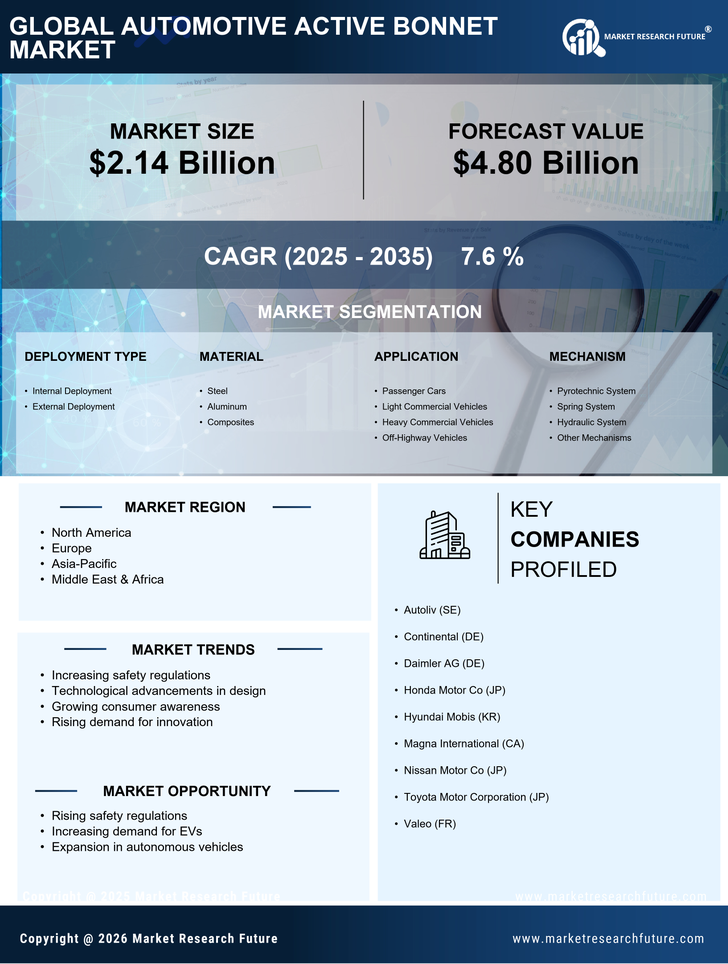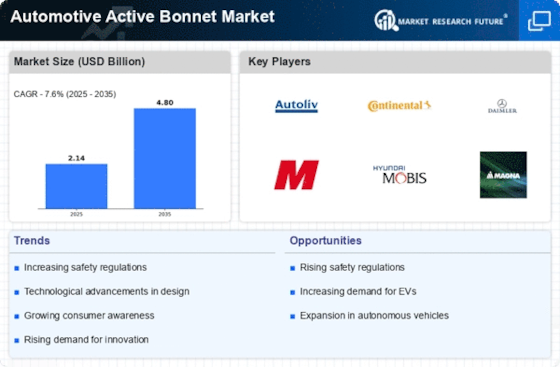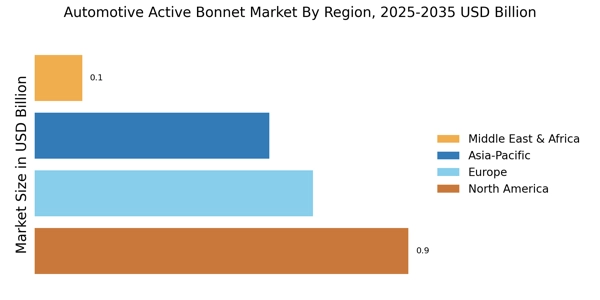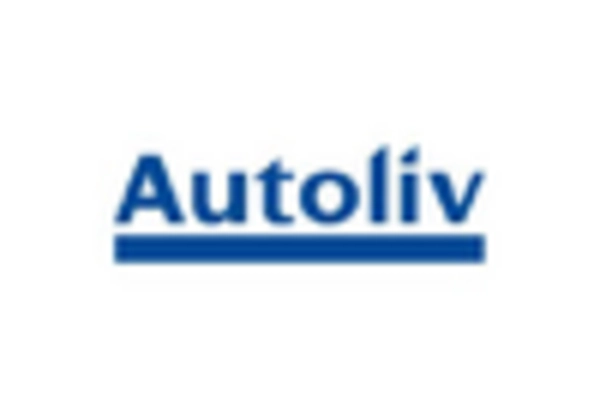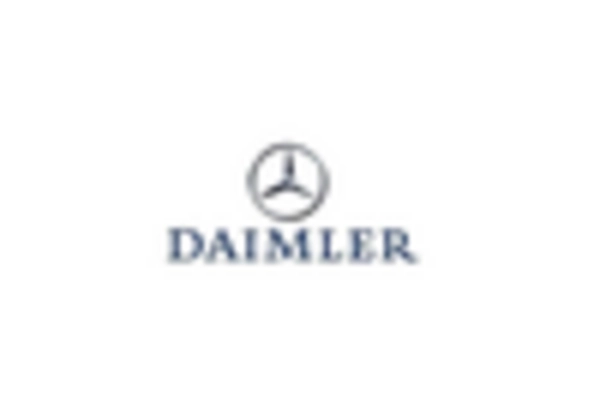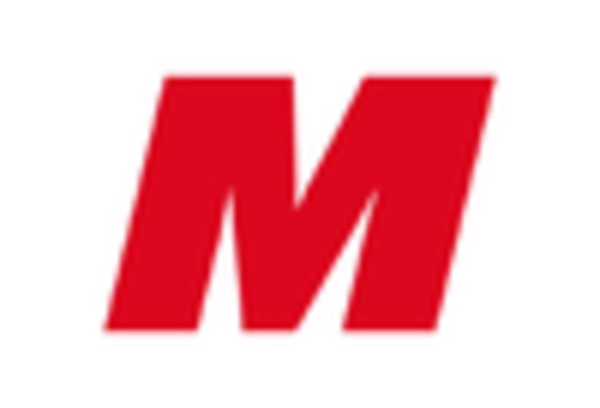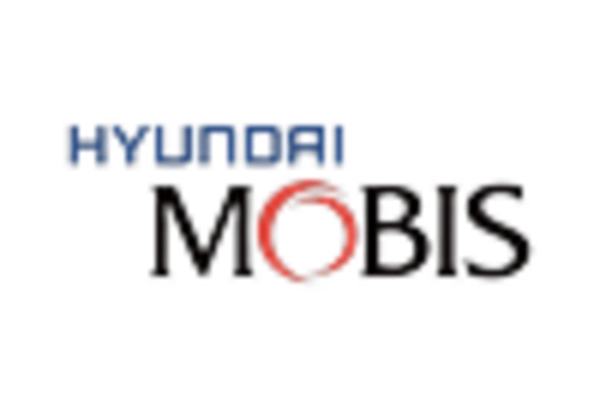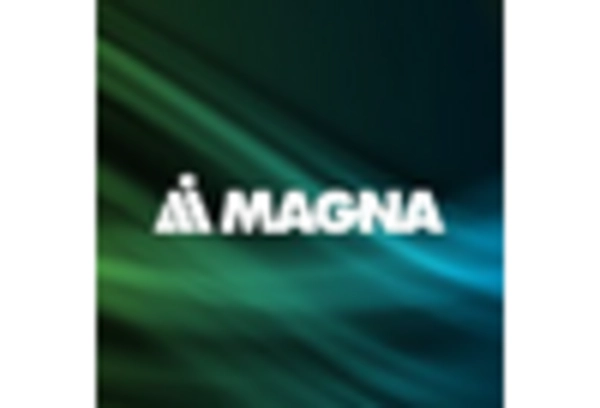Stringent Regulatory Frameworks
The Automotive Active Bonnet Market is significantly influenced by stringent regulatory frameworks that mandate enhanced safety measures in vehicles. Governments across various regions are implementing regulations that require manufacturers to adopt advanced safety technologies, including active bonnet systems. These regulations are designed to reduce pedestrian injuries in the event of a collision, thereby promoting the adoption of such technologies. For instance, the European Union has introduced directives that necessitate the incorporation of pedestrian protection systems in new vehicle models. This regulatory pressure is likely to propel the growth of the active bonnet market, as compliance becomes essential for manufacturers aiming to meet safety standards.
Rising Consumer Awareness of Safety Features
The Automotive Active Bonnet Market is witnessing a notable increase in consumer awareness regarding vehicle safety features. As consumers become more informed about the potential risks associated with pedestrian accidents, there is a growing demand for vehicles equipped with advanced safety technologies, including active bonnets. Market Research Future indicates that approximately 70% of consumers prioritize safety features when purchasing a vehicle. This heightened awareness is prompting manufacturers to invest in the development of innovative active bonnet systems, thereby driving market growth. The shift in consumer preferences towards safety-oriented vehicles is expected to have a lasting impact on the automotive industry.
Technological Innovations in Automotive Safety
The Automotive Active Bonnet Market is experiencing a surge in technological innovations aimed at enhancing vehicle safety. Advanced sensor technologies and artificial intelligence are being integrated into active bonnet systems, allowing for real-time detection of pedestrian presence. This innovation not only improves safety but also aligns with the increasing consumer demand for vehicles equipped with cutting-edge safety features. According to recent data, the market for automotive safety systems is projected to grow at a compound annual growth rate of approximately 8% over the next five years. This growth is likely to drive investments in active bonnet technologies, as manufacturers seek to differentiate their offerings in a competitive landscape.
Collaboration Between Automakers and Technology Firms
The Automotive Active Bonnet Market is benefiting from collaborations between automakers and technology firms focused on enhancing vehicle safety. These partnerships are fostering innovation in active bonnet technologies, as automotive manufacturers leverage the expertise of tech companies in areas such as sensor development and data analytics. Such collaborations are likely to accelerate the development of more sophisticated active bonnet systems that can better detect pedestrians and respond accordingly. As the automotive landscape evolves, these strategic alliances are expected to play a crucial role in driving advancements in safety technologies, thereby contributing to the overall growth of the active bonnet market.
Integration of Active Bonnet Systems in Electric Vehicles
The Automotive Active Bonnet Market is poised for growth due to the integration of active bonnet systems in electric vehicles (EVs). As the automotive industry shifts towards electrification, manufacturers are increasingly incorporating advanced safety features into their EV models. Active bonnets are becoming a standard feature in many new electric vehicles, enhancing pedestrian safety while maintaining the sleek design of modern EVs. This trend is likely to attract environmentally conscious consumers who also prioritize safety. The increasing production of electric vehicles, projected to reach over 30 million units annually by 2030, presents a significant opportunity for the active bonnet market to expand its reach.
